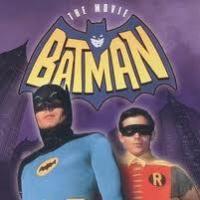 Untitled
Untitled
coffee and america
Like their counterparts in Mother England, America’s colonial cafe’s quickly developed a reputation for brewing bad coffee and big business. Boston’s Merchant Coffeehouse was the scene of the first public stock auction, while Wall St.’s Tontine Coffeehouse became the New York Stock Exchange.
-from stewart lee allen’s the devil’s cup
jules michelet
For this sparkling outburst of creative thought [the Enlightenment] there is no doubt that the honor should be ascribed in part to the great event which created new customs and even changed the human temperament- the advent of coffee.
what happened to all of those olde english coffee houses?
Essentially, England, […] had failed to acquire any significant coffee-growing plantations. […] This meant that every cup of java downed by British subjects put money in the pockets of European competitors. […] So the Brits began trading Indian opium for Chinese tea. […] and Europe’s first great cafe society became an historical footnote.
But first!…
The women of London found these scenarios of withered and flaccid manhood [supposedly from coffee] particularly alarming. By the 1670s their city; was overrun with coffeehouses. When the medical reports became common knowledge, a group of females petitioned the mayor to band the “hell-brew” coffee in order to preserve their sex lives. Their 7-page petition gives some compelling reasons. British gentlemen it said, were the “ablest performers in Chrisndom…with lusty lads of eight hundred years fathering Sons and Daughters.” These amazing feats of sexual prowess, however, came to an end when that”abominable, heathenish liquor called COFFEE…dried up thier Radical Moisture…leaving them with nothing but their snotty noses, and nothing stiff but their joints.”
But a fuller extract is in order.
The Humble Petition and Address of Several Thousand of Buxome Good-Women, Languishing in Extremity of Want…”
SHEWETH
That since ‘tis Reckon’d amongst the Glories of our native Country To be A paradise for women, it is too our unspeakable Grief we find of late that our gallants are become mere Cock-sparrows, fluttering things that come on with a world of Fury but in the very first Charge fall down Flat before us…all these qualities we can Attribute to nothing more than excessive use of the most pernicious Coffee, where Nature is Enfeebled and our men left with Ammunition Wanting; peradventure they Present but cannot give Fire…Certainly our Countrymen’s pallettes are become as Fanatical as their Brains. How else is it possible that they should run a Whoreing to spend the money and time on a little base, black thick, nasty, Bitter, Stinking, Nauseous, Puddle-water (also known as Ninny’s Broth and Turkish Gruel) so that those that have scarce twopence to buy their children bread must spend a penny each evening in this insilpid stuff…Wherefore we pray that drinking COFFEE be forbidden to all Persons under the Age of Threescore and that Lusty Nappy Beer and Cock Ale be recommended to General Use…so that our Husbands may (in time) give us some other Testimonies of the being Men, besides their Beards, and that they no more shall run the hazard of being Cuckol’d by Dildos.
In Hopes of a Glorious Reformation
London, 1674
-from stewart lee allen’s the devil’s cup
coffee helped midwife modern democracy
Aside from sobering up the workplace, coffeehouses gave Brits an alternative to taverns in which to meet and talk. Taverns were not the safest place to discuss politics or religion. Everybody was armed or drunk, usually both, and proprietors sensibly discouraged heated discussions. Coffeehouses, on the other hand, encouraged political debate, which was precisely why Charles 2 banned them in 1675 (he withdrew the ban in 11 days).
Coffee, however, was more than a mere substitute for beer. It is a stimulant, both physical and mental, and its usurpation of a depressant like alcohol caused changes.
This democratic inclination manifested itself most forcefully in london’s famous Turk’s Head Coffeehouse, where the ballot box [!!], the foundation of modern democracy, first appeared so customers could safely voice their opinion on controversial political topics. This innovation occured after the repressions of Oliver the Great and ensured that the government spies who plagued the cafe could not identify “traitors”.
Coffee’s ability to swell our wealth was manifested most noticeably in Britain, where coffeehouses became headquarters for some of the world’s most powerful businesses, including Lloyd’s of London (Lloyd’s Coffeehouse) and the London Shipping Exchange (Baltic Coffeehouse) and East India Company (Jerusalem Cafe) .
-from stewart lee allen’s the devil’s cup
the joffe coffee theory of expansionism
“Bad coffee equals expansionism, imperialism, and war; good coffee drips with civility and pacifism and lassitude. I prove it. Quick, who makes the best coffee in the world?”
“The Italians?”
“And when was the last time the Italians won a war?”
“Hmm, -what, AD 300?”
“And when did you Americans finally learn to make coffee?”
“Oh, I guess in the 60s sometime.”
“And when was the Vietnam war?”
“I see. Am I to understand that you’re saying, for instance, that the current round of Chinese expansionism is the result of their inability to brew a decent cup of coffee?”
“Absolutely. If we really wanted to end Chinese aggresion today we would bomb them with Gaggia coffeemakers.”
“Perhaps the UN peacemakers should carry Melita drips and Ethiopian Sidamo.”
“Instead of machine guns? Precisely.”
“What’s the coffee like at the UN, do you know?”
He shook his head sadly. “It’s not a pretty thought.”
the devil’s cup, by stewart lee allen












